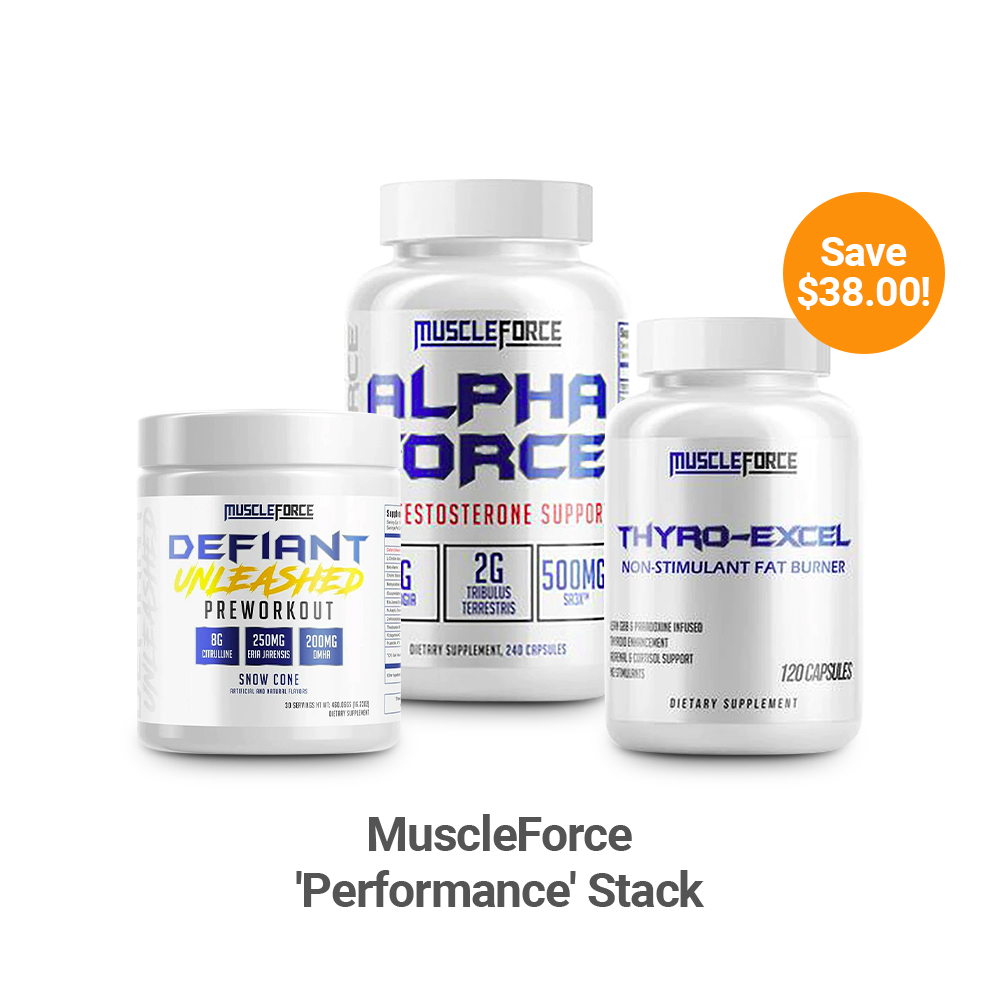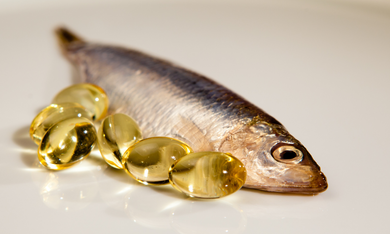1. What Is It?
Fish Oil is a term used to describe a general health and wellbeing supplement that provides omega-3 fatty acids that would otherwise be acquired by consuming adequate amounts of fatty fish.
Typically the term fish oil refers to two specific omega-3 fatty acids: eicosapentaenoic acid (EPA) and docosahexaenoic acid (DHA) which in natural form are found in marine sources such as tuna, salmon, mussels, phytoplankton and also in animal products such as eggs, chicken and beef in far lower concentrations.
Fish oil in supplemental form, be it liquid or soft-gel capsules are highly popular due to their cost effectiveness and convenience of obtaining omega-3 fatty acids in the human diet.
2. What Does It Do?
The long-chain fatty acids found in Fish Oil have long been shown to provide a variety of health related benefits including:
Reducing High Triglyceride Levels
Triglycerides are fats (lipids) that are found in your blood and are used for energy. High triglyceride levels are typically caused by obesity, poorly controlled diabetes, excessive alcohol consumption and regular overeating and may lead to an increase in risk of heart disease and metabolic syndrome. Specifically the EPA and DHA found in fish oil assist to reduce the production of lipoproteins in the liver and accelerate the conversion of fatty acids to energy, resulting in reliable reductions in triglyceride levels following several weeks of supplementation.
Controlling levels LDL Cholesterol
LDL Cholesterol is typically termed ‘bad cholesterol’ due to its potential to collect in the walls of the blood vessels, increasing the risk of heart attack from a sudden clot in an artery. In some studies fish oil, specifically omega-3 fatty acids has been shown to help control the number of cholesterol particles especially when substituted for foods that are high in saturated fat.
Reduce Chronic Inflammation & Arthritis
Numerous studies have reported that supplementing with fish oil is helpful for reducing inflammation from physical activity and may help to relieve joint pain and stiffness in a similar way to anti-inflammatory drugs. Specifically increased intake of EPA and DHA help to trigger the production of inflammation resolving molecules known as resolvins that contain anti inflammatory properties.
Increased Neurological Performance
Fish oil has long been termed ‘brain food’ due to it’s ability to improve cognitive function and also prevent neurological disease. Specifically diets high in DHA allow memory cells in the hippocampus of the brain to communicate more effectively with each other which has a profound effect on improving reference memory and potentially alleviating the signs and symptoms of Alzheimer’s disease.
Improved Body Composition
Some evidence suggests that supplementing with fish oil in conjunction with an anabolic stimulus (physical exercise) can provide benefits in both muscle growth, reduced body fat and improved body composition. Studies reference supplementing with fish oil (1860mg EPA + 1500mg DHA) increased various markers associated with increased muscle mass and improved body composition, including the improved of insulin sensitivity and uptake or glucose as well as increased muscle protein synthesis and muscle protein concentration.
3. When Do I Take It
Fish oil can be taken at anytime of the day, to reduce the common-side effect of ‘fish-burps’ it is recommended to consume fish oil supplements before your three largest meals of the day.
Research suggests a daily dose of 2.7 grams of omega-3 (EPA + DHA) is required to reduce inflammation, however benefits to heart health, cholesterol and triglyceride levels can be achieved at a lower dose of 1 gram of combined EPA and DHA. Typically a dose of 2.7 grams will require approximately 6 caps-15 caps of standard 1000mg fish oil capsules or 10ml-20ml of bottled fish oil.
Higher quality fish oil supplements will contain a proper dose of both EPA and DHA per serving, as opposed to poor quality products that typically under-dose DHA requiring you to consume upwards of 15 capsules per day, along with the extra 15 grams of fat.
4. How Long Does It Take To Work
Although not a stimulant, fish oil has been shown to increase brain activity so users may experience improved cognition and mental alertness within 15 – 30 minutes after consumption.
The long-term health benefits of fish oil happen over a period of days and weeks, with your body attaining optimal blood, brain and heart levels of omega-3 within 1-2 months of use.
Consistent use of fish oil in conjunction with a sensible diet and bodybuilding workout regime, users will experience the full health and performance benefits of fish oil within the first month of use.
5. How Much Does It Cost?
Fish oil capsules and bottled fish oil containing EPA and DHA , range anywhere from $0.05 to $0.15 per 1000mg serve, depending on the size and quantity of the product.
Typically higher quality fish oil products that contain a ratio of 1 to 1 (EPA to DHA) and higher quantities of both omega 3 oils per 1000mg will be at a higher cost, however users will not need to consume nearly as many capsules as a poor quality product.





